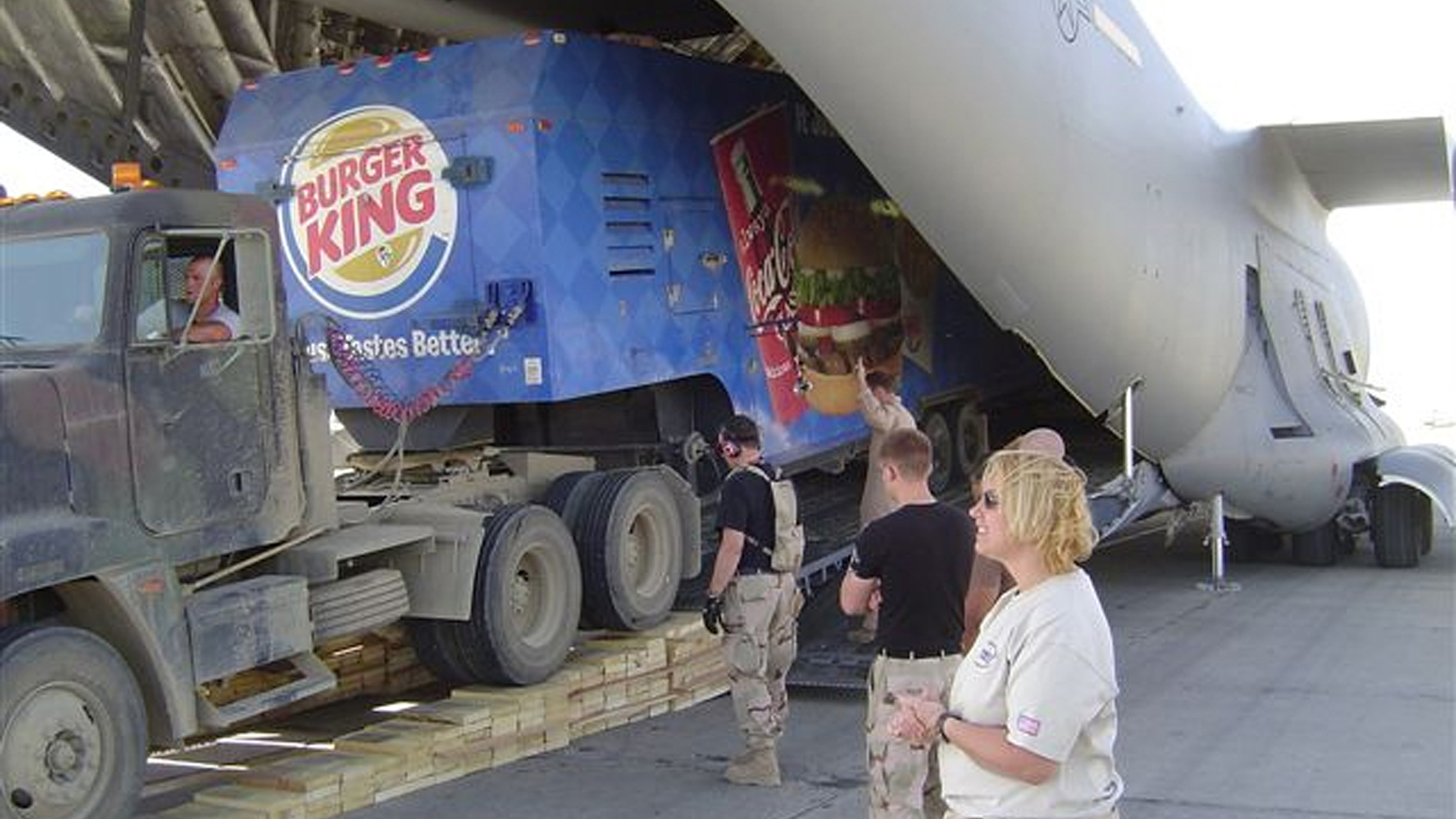

U.S. troops might become more physically fit if military installations banned cheeseburgers and other fast food, according to the military’s highest ranking enlisted Marine. Senior Enlisted Advisor to the Chairman of the Joint Chiefs of Staff Troy E. Black, made the comments on a popular military podcast.
“If you want to reduce obesity, serve different types of food at the chow hall,” Black told hosts Alex Morrow and Drew Hammond during an Aug. 4 episode of the MOPs & MOEs podcast. “Remove immediately all fast-food restaurants from all installations.”
Black discussed fast food during a wide-ranging interview on the podcast about the Pentagon’s role in promoting physical fitness in the ranks and human performance programs. Black was not announcing or proposing changes to current food line-ups on bases across the military but rather expressing his personal views on nutrition’s role in fitness. .
Just as squad leaders are responsible for making sure their troops have enough water and rest, Black said, the Pentagon needs to set requirements for human performance standards. Because human performance is essential to wartime success, Black said, the Defense Department needs policies that support troops’ physical, mental, social, spiritual, and behavioral needs..
Black said that military dining facilities are required by contract to provide well-balanced meals that are high in macronutrients. “Unfortunately, it doesn’t compete with a cheeseburger,” he added.
Subscribe to Task & Purpose today. Get the latest military news and culture in your inbox daily.
“If you go into a SOF [special operations forces] installation – I’ve been to a couple of them – none of that stuff exists there because the primacy of the performance of that individual – not just physically – but every decision that they do, the investment in that individual is so great, they can’t afford to exception in these other areas within their span of control,” Black said.
Obesity is a problem for both the military and the American public in general. A 2023 study from the American Security Project think tank in Washington, D.C, found that 68% of U.S. service members were obese or overweight.
Between 2012 and 2022, obesity rates for active-duty troops more than doubled from 10.4% to 21.6%, the study found. Meanwhile, eating disorders among troops also increased by roughly 79% between 2017 and 2021.

“Despite being a chronic disease with several FDA-approved treatment options, antiquated body composition policies and stigma prevent effective treatment of obesity within the Armed Forces,” according to the study.
Black could not be reached to comment for this story. The Senior Enlisted Advisor to the Chairman position was created in 2005 as the designated highest-ranking enlisted member in the military — outranking each service’s senior enlisted advisor — and is filled on a rotating basis by senior enlisted members from each military branch.
As SEAC, Black advises Air Force Gen. Charles “CQ” Brown Jr., chairman of the Joint Chiefs of Staff, on issues related to enlisted service members. He is the fifth person to serve as the Senior Enlisted Leader to the Chairman.
Black is not the first senior military leader to suggest eliminating fast food options for troops. In 2010, Army Gen. Stanley McChrystal, then the commander of all U.S. and NATO troops in Afghanistan, banned Burger King and Pizza Hut from Kandahar Airfield.
McChrystal was fired shortly thereafter for a disastrous Rolling Stone interview in which he and his staff were portrayed as disparaging the civilian chain of command, including then-Vice President Joe Biden. The fast-food restaurants returned to Kandahar following his dismissal.
During his podcast interview, Black suggested that the U.S. military could educate troops to think about nutrition differently and then “eliminate all the challenges to that.”
“Sometimes too many options is not good for our performance,” Black said.
But when Black was asked why the military doesn’t get rid of fast food on bases, he explained that those restaurants generate non-appropriated funds – which do not come directly from Congress – that pay for amenities for troops and families, including base swimming pools.
Without that source of funding, the military would have to ask Congress for money to fund morale, welfare, and recreational programs, he said, adding that appropriated funds are for warfighting needs.
“With almost $1 trillion, you can do a lot of things,” Black said. “But can you have softball, soccer, swimming pools, gyms? Can you have that kind of stuff in an appropriated budget? Are those things requirements for the Department of Defense?”
The latest on Task & Purpose
- Command sergeant major for Army’s 173rd Airborne Brigade fired
- The ‘Swift Boating’ of Tim Walz has begun. What is the truth?
- Army officer and West Point grad crowned Miss USA
- New recruiting MOS selects first class of 25
- A guide to all the parachutes that American paratroopers ‘ride to work’
